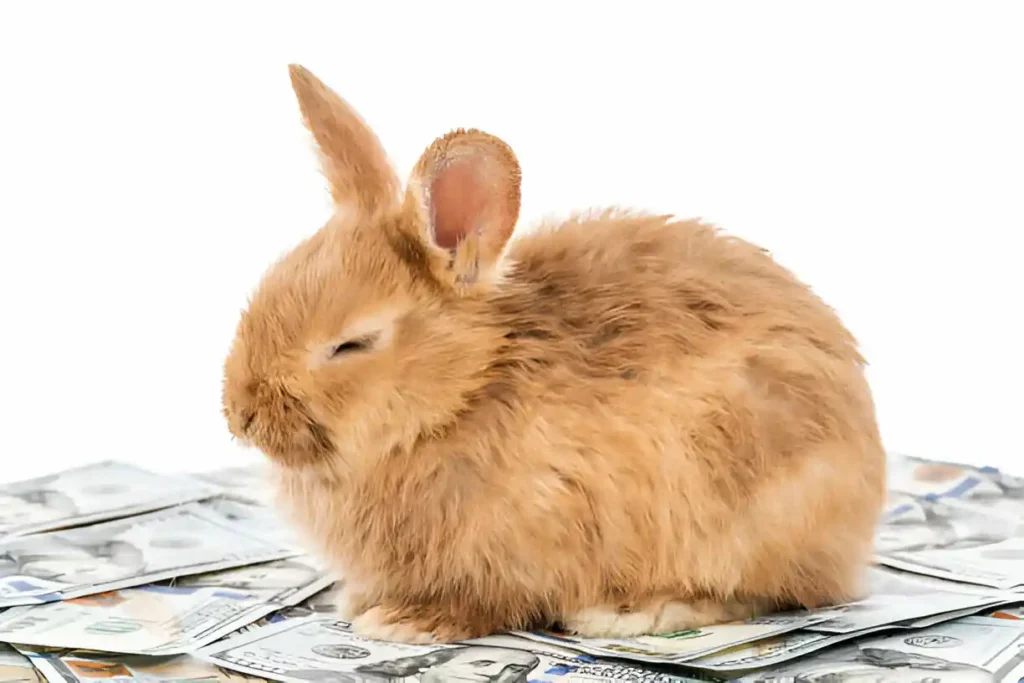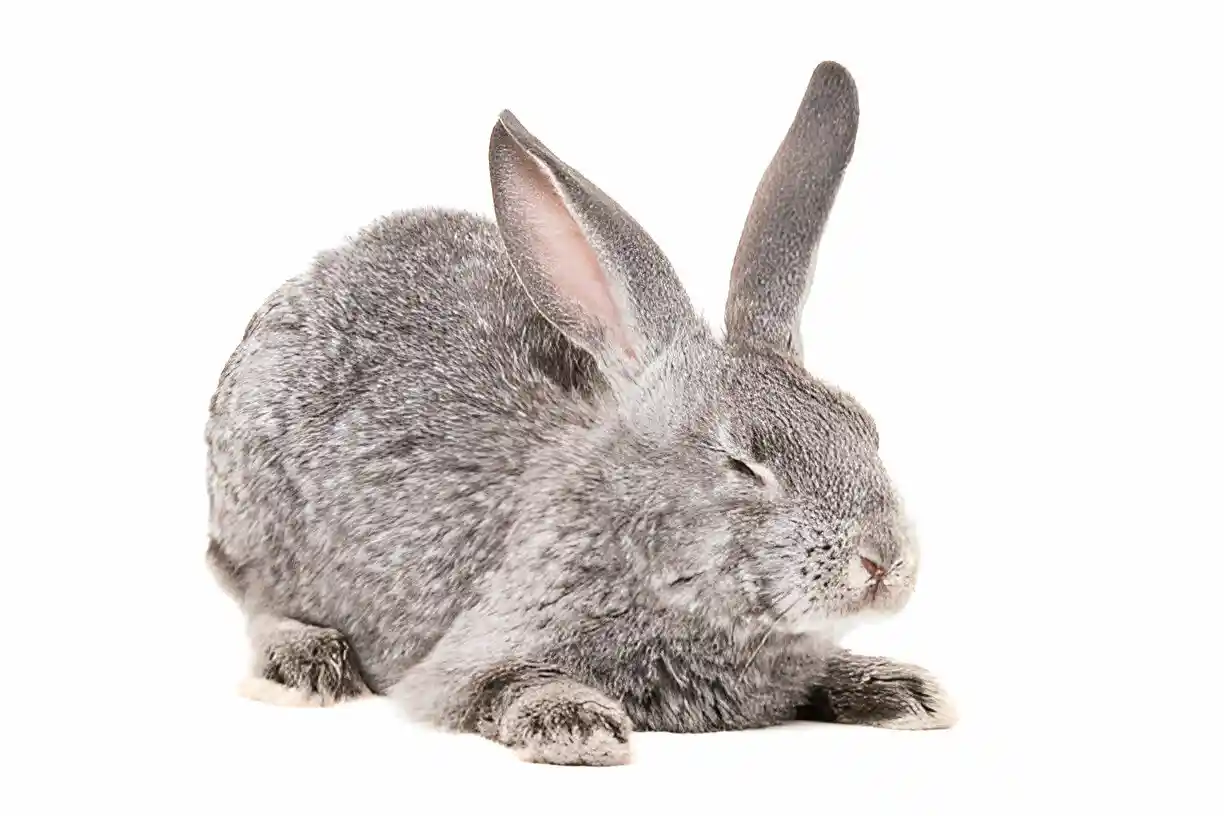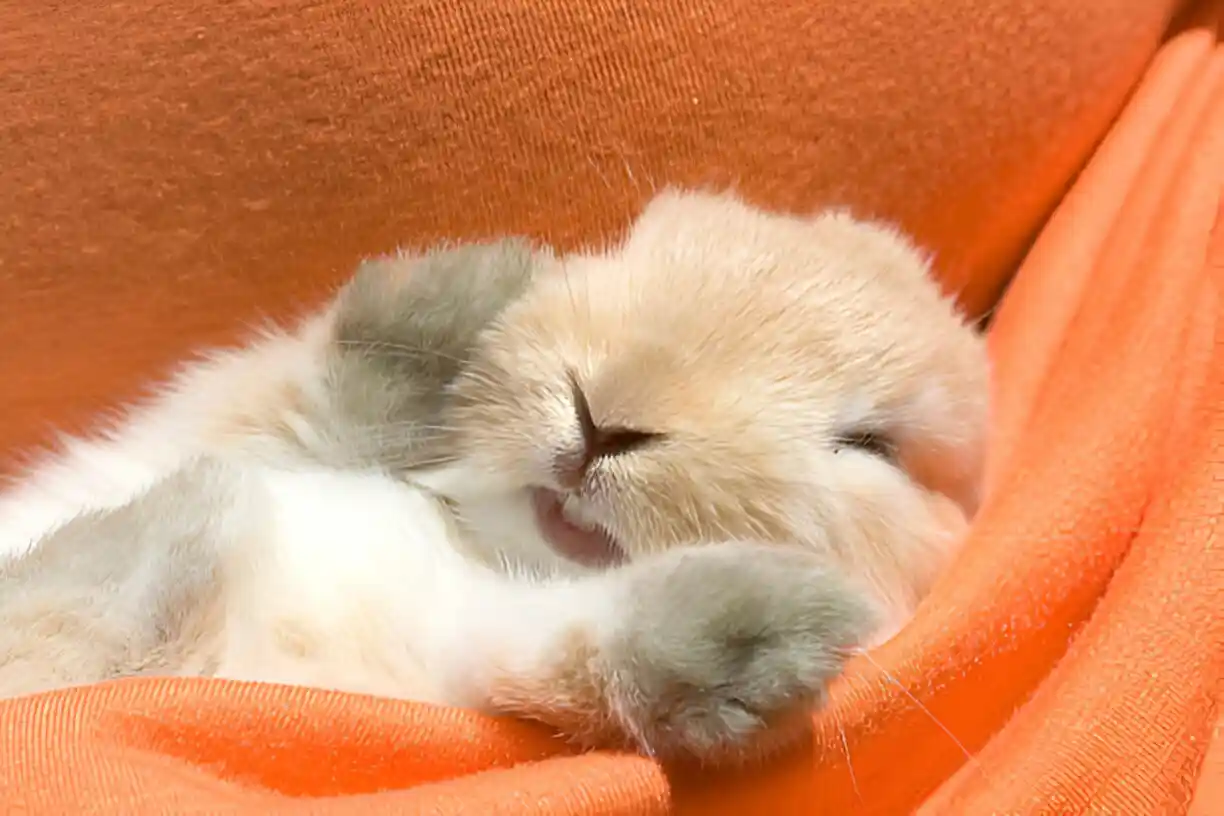Have you ever watched your fluffy companion twitch its nose adorably and wondered, “Do rabbits snore?” Snoring in rabbits, while less common than in humans, can sometimes be heard when your cuddly pet is deep in dreamland. It’s crucial to differentiate between normal sleeping noises and those that could indicate underlying health issues. In this easy-to-understand guide, let’s explore the snoozing sounds of rabbits.
A Peek Into Rabbit Sleep Habits
To understand if and when rabbits snore, we must first dive into how they catch their Z’s. Rabbits are interesting creatures when it comes to their sleep patterns. Unlike humans with their lengthy nighttime rituals, bunnies adapt to shorter, more frequent naps. Snoring may occur, but it’s not typical for all bunnies.
What Does Snoring Indicate in Rabbits?
When rabbits snore, the soft whistling or gentle rumbling sounds are usually the result of relaxed airways. This phenomenon is harmless in many cases and simply a sign that your rabbit is in a peaceful sleep state. However, persistent or loud snoring might signal potential health issues.
Airflow and Bunny Noses
For a rabbit, the act of breathing is intricately linked with its complex nasal structure. These delicate creatures have a highly specialized system that filters and regulates airflow. Suppose you notice that your rabbit’s snoring is accompanied by unusual nasal discharge. In that case, it is essential to consult a vet, as this could be indicative of an upper respiratory infection or other concerns.
Identifying Normal vs. Concerning Rabbit Snoring
Keeping an ear out for what is ordinary and what might be a warning sign is an important aspect of pet ownership. Keep in mind the following distinctions:
Normal Snoring
Unusual Snoring: Persistent, accompanied by other changes like changes in eating habits or energy levels, potentially needing a vet’s attention.
The Question of Indoor Air Quality and Bunny Sleep
While investigating the snoring of our furry friends, we can’t ignore their environmental conditions. The indoor air quality might play a subtle but pivotal role in mitigating sleep disruptions. Ensure your home is well-ventilated and free from irritants that could affect your bunny’s respiratory health and, consequently, their snoozing sounds.
Quality
Tobacco smoke, scented candles, and strong cleaning agents can be particularly irksome for your sensitive pet. Try to maintain a clean, smoke-free area around their living space to facilitate a restful sleep devoid of sneezes and snores.
Do Diet and Digestion Influence Rabbit Snoring?
Just like us, what rabbits eat can affect their sleep. A healthy diet high in fiber, primarily consisting of hay, greens, and a limited amount of pellets, contributes to the overall well-being of your pet. Digestion can affect slumber. Curiosity around “Do rabbits snore” may sometimes extend to questions regarding their digestion, such as “Do rabbits fart,” which the answer is yes, rabbits can fart. This is typically normal and related to their digestive process, which, if disrupted, may sometimes interfere indirectly with their sleep.
Recognizing the Rhythms of Rabbit Sleep
Rabbits are creatures of habit, and they thrive on routine. When you observe their rhythms, you’ll understand better the uniqueness of their sleep patterns. Rabbits can experience REM sleep, which is when snoring most frequently occurs, if it occurs at all. It is during REM that rabbits dream, and slight, quick movements or twitching whiskers accompany this stage. It’s critical to ensure your pet feels secure in its environment for undisturbed sleep.
The Role of Comfort and Safety in Bunny Beds
Speaking of secure environments, your rabbit’s sleeping quarters can influence the quality of their rest. Plush bedding and a quiet, cozy corner help soothe them into dreamland, whether they are dozers or light sleepers. Survey the sleeping spot. Make sure it’s far from loud noises or disturbances and observes how this placement affects their sleep and potential snoring episodes.
Normal Noises vs. Respiratory Issues
Ear-perking sounds emanating from your snoozing rabbit can be cute or concerning. A snore now and then? Probably adorable. Snoring paired with discharge, wheezing, or difficulty breathing? That’s a red flag. The question of “Do rabbits snore?” may similarly raise concerns like those triggered by the query “Do rabbits fart.” Occasional release of gas is fine, but frequent, noticeable gas could be a mark of dietary issues and not a trait on which to focus much concern.
Observe and Act Wisely
So, do rabbits snore? Some indeed may whisper gently in their sleep, while others may never make a peep. It’s critical to understand what’s commonplace and what’s a concern in the nocturnal notes of your furry sidekick. If their sleeping sounds like snoring become frequent and you notice signs of distress, a veterinary check-up is the best course of action.
While “Do rabbits snore?” and “Do rabbits fart?” are compelling topics for any rabbit owner, it’s essential to focus on the overall health and happiness of your pet. Monitor their behavior, dietary habits, and comfort in their living space. Any abnormalities in those areas are more indicative of potential problems than incidental snoozing symphonies or the occasional fart.
To keep your bunny breathing easily and snoozing sweetly, always ensure their living conditions are impeccable, their diet is spot on, and their health is monitored with the help of a trusted vet. Happy and healthy rabbits might just be the quiet sleepers we envy. Remember that knowledge and timely response to changes are the keys to ensuring the well-being of your ear-flopping friends.
Final Thoughts
Your curiosity about your pet’s nocturnal habits illustrates the depth of your care and love for them. Sharing moments, like discovering the answer to “Do rabbits snore?” is part of the joy of being a pet parent. Grow your understanding, and you’ll enhance the bond with your rabbit, one peaceful snooze at a time.
FAQs on Do Rabbits Snore?
Do all rabbits snore?
Not all rabbits snore audibly. While some may occasionally make sounds during sleep, it’s not a universal trait among all rabbits.
Is snoring in rabbits a sign of illness?
Snoring can sometimes indicate respiratory issues or obstruction in the airways, especially if accompanied by other symptoms like wheezing or labored breathing. It’s advisable to consult a veterinarian if you notice persistent snoring in your rabbit.
Can snoring in rabbits be prevented?
Preventing snoring in rabbits involves maintaining a clean and comfortable sleeping environment. Regular vet check-ups can also help detect and address any underlying health issues that may contribute to snoring.
Are certain rabbit breeds more prone to snoring?
Some brachycephalic (flat-faced) breeds of rabbits, such as the Holland Lop or English Lop, may be more prone to snoring due to their facial structure. However, individual variations in sleeping habits and health conditions play a significant role.
What should I do if I suspect my rabbit is snoring?
Monitor your rabbit’s snoring patterns and observe for any changes or accompanying symptoms. If snoring becomes frequent or is accompanied by signs of discomfort or respiratory distress, consult a veterinarian promptly for a thorough examination and appropriate treatment.



